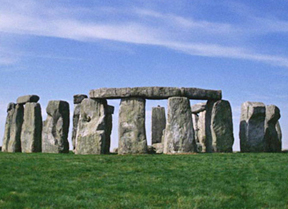Spring Festival

The Spring festival of China is otherwise known as the Chinese New Year and is often called as the Lunar New Year. This festival takes place for 15 days from day one of the Chinese calendar and final day of celebration is called as Lantern Festival. The eve of this festival is called as Chuxi and is a special time for friends and family and during which the Chinese try to settle their debts. Much before the onset of the festival the people start cleaning their house. The markets get very busy where variety of items like tangerine plants, flower displays, Chinese paintings and calligraphy are sold. There is a belief among the Chinese where the Kitchen god, "Tso Kwan�, goes to the heaven and gives a report on the behaviour of the humans for the year. So as a matter of homage to the Kitchen gods return prayer ceremonies are also held during this festival. On the day of New Year people wear new clothes and they exchange among friends and relatives a red packet containing small amount of money. The following or on the second day the welcoming of the year takes place followed by the "Squabble Day" which mean arguments, so the Chinese insist on not argue or fight on this day and finally on the fourth day the kitchen god is welcomed back home from heaven.
Lantern Festival
The Lantern festival falls on the last or the 15th day of the New Year celebrations. History gives us a story of the actual reason for celebrating this festival. The story goes like, the Jade emperor in the heaven wanted to destroy a goose with a storm of fire. On hearing this, an angel called upon the people of the town and asked them to light the whole town with lanterns on specific day giving the town ablazed effect. The people also did as they were instructed and when Jade looked down from the heaven it appeared as though the whole town, the people and the avenged goose was in fire. This is the story of the Lantern festival and from then on the anniversary is celebrated by carrying of lanterns, dances and fireworks.
Mid-Autumn Festival
This festival is celebrated on the fifteenth day of the eighth moon, around the time of the autumn equinox and between the second week of September and the second week of October. Today this festival takes place with a family reunion dinner and after which they go out to parks and public squares. But in olden days this is considered as one of the major harvest festivals for this is the time of the harvest of fruits, vegetables and grain. Chinese relate the life of humans to a moon for it is subjected to waxing and waning, parting and reunion, joy and sorrow. Since the moon symbolizes reunion it is also known as family reunion festival where all family members get together. No festival is complete without special dishes. On the eve of mid-autumn festival moon cakes, cooked taro, edible snails from the taro patches or rice paddies are cooked with sweet basil, and water caltrope, a type of water chestnut. Taro is the most important food to be present on this occasion because taro was the first food discovered at night in the moonlight.
Tin Hau Festival
This festival falls on the 23rd day of the Third Moon and is to honour the Mother of boat people and sailors who a young girl is named Tin Hau which means �Queen of Heaven According to legends this girl was born in a fisherman family and one day when her father and brothers were off fishing she had a bad dream of them drowning. She immediately few over the sea and saved her family members. Tin Hau is also said to have been able to predict storms and sea traveller's fortunes. But unfortunately she died at the age of twenty after which a number of temples was built and dedicated to her spirit. As a matter of paying tribute to Tin Hau, on her birthday, the boat people, sailors and those who live on the waterfront, sail to Da Miao (the Great Temple) in Joss HoUse Bay and pay their respects to the goddess, praying for safety in the coming year.
Dragon Boat Festival
This oldest traditional festival, nearly 2000 years old which was originally a religious one is no more of its kind, for now it is more of recreational. The death of the poet Qu Yuan, who drowned himself in the 3rd Century BC as a protest against a corrupt government is celebrated as the Dragon boat festival. On this day the people offer rice dumplings, beat drums and conduct competitions like boat race. This is because according to legends the town's people attempted to rescue Qu Yuan by beating drums to scare fish away from eating his body and threw rice dumplings into the river to tempt the fish away from their hero.


